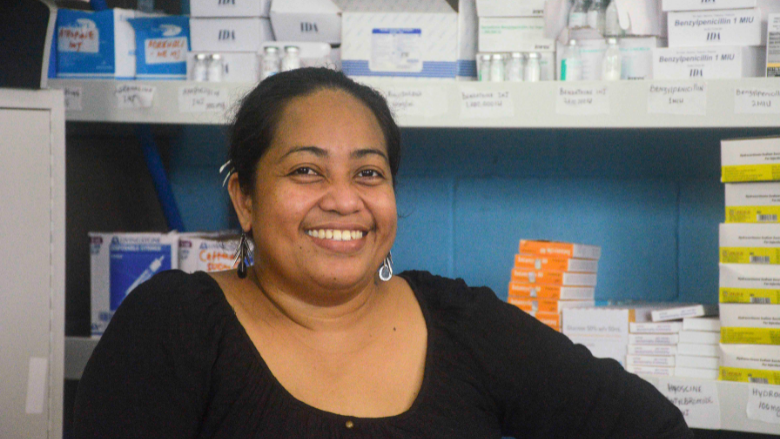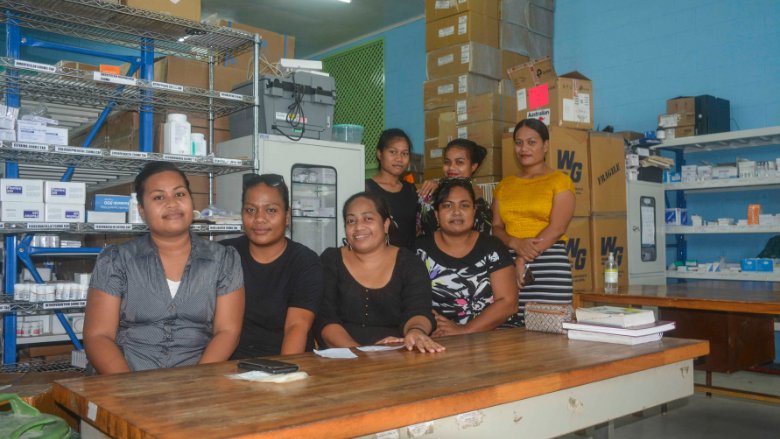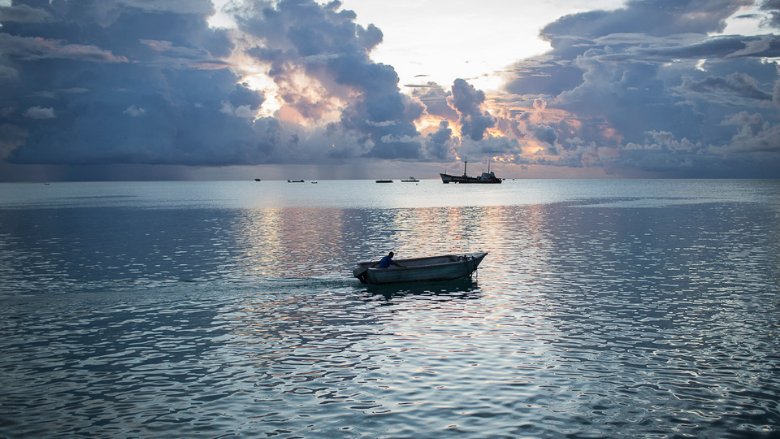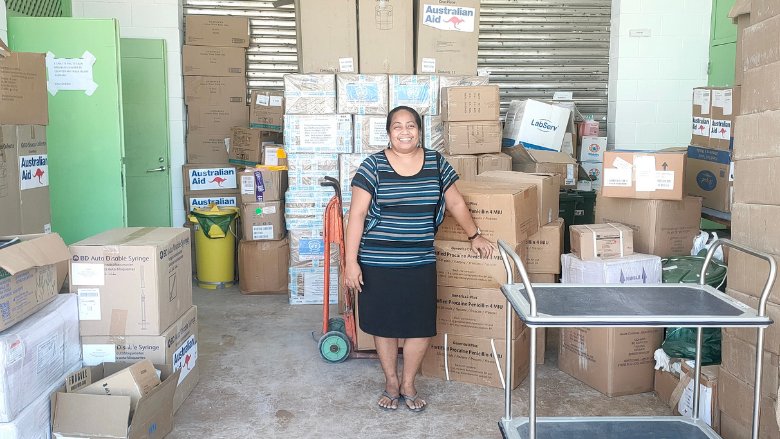It is no exaggeration to say that pharmacist Moannara Benete literally has one of the biggest jobs in the Pacific. Kiribati’s 21 inhabited islands are spread across some 3.5 million square kilometers of ocean, and as leader of the Kiribati Ministry of Health & Medical Services’ Pharmacy team, Moannara’s focus is ensuring medical supplies are available to all people in her country; no matter where they live.
This was already an immense challenge before COVID-19, and the pandemic has only amplified these challenges. Medical supplies have been difficult to source, and there have been significant delays in their arrival. This has led to an increase in urgent medical supply orders, which have driven up prices.
“Procurement of medical supplies is an important part of most health care services,” says Moannara Benete, from her office in Kiribati’s capital, Tarawa. “Our goal is to improve the overall health of the population by sourcing and buying quality cost effective medical supplies. A well-managed procurement program supports economic and social development by keeping the population as healthy as possible.”
The logistics of managing pharmacy supplies across 21 islands spread across 3.5 million square kilometers of ocean are an immense challenge. Photo: Conor Ashleigh/World Bank
Taking control of health service delivery
The World Bank is supporting Kiribati’s commitment to advance Universal Health Coverage so that all I-Kiribati can access health services when they need them. A key part of this work is helping to track development partner contributions to health programs, so they are recognized as part of integrated plans and budgets that are managed by the Ministry of Health and Medical Services. In doing so, the Ministry is then able to make the most of all available resources, ensure it understands where support is coming from and when, and take control of health service delivery in a more efficient and holistic way.
While many can access health care when they need it on Kiribati’s main island of Tarawa, it is a much greater challenge to ensure the clinics, and pharmacies on the outer islands are stocked with sufficient supplies and equipment.
“I am really happy with the progress the pharmacy team is making. We have limited resources, but we work well as a team and there is a lot of enthusiasm for what we are doing,” explains Moannara. “We’re improving supply chain management, and now for the first time we also have a comprehensive national essential medical supplies list – which includes medicines, equipment, and consumables.”

Kiribati’s lead pharmacist, Moannara Benete says that getting the supply chain and distribution of medical supplies right will benefit everyone in Kiribati. Photo: Rimon Rimon/World Bank



